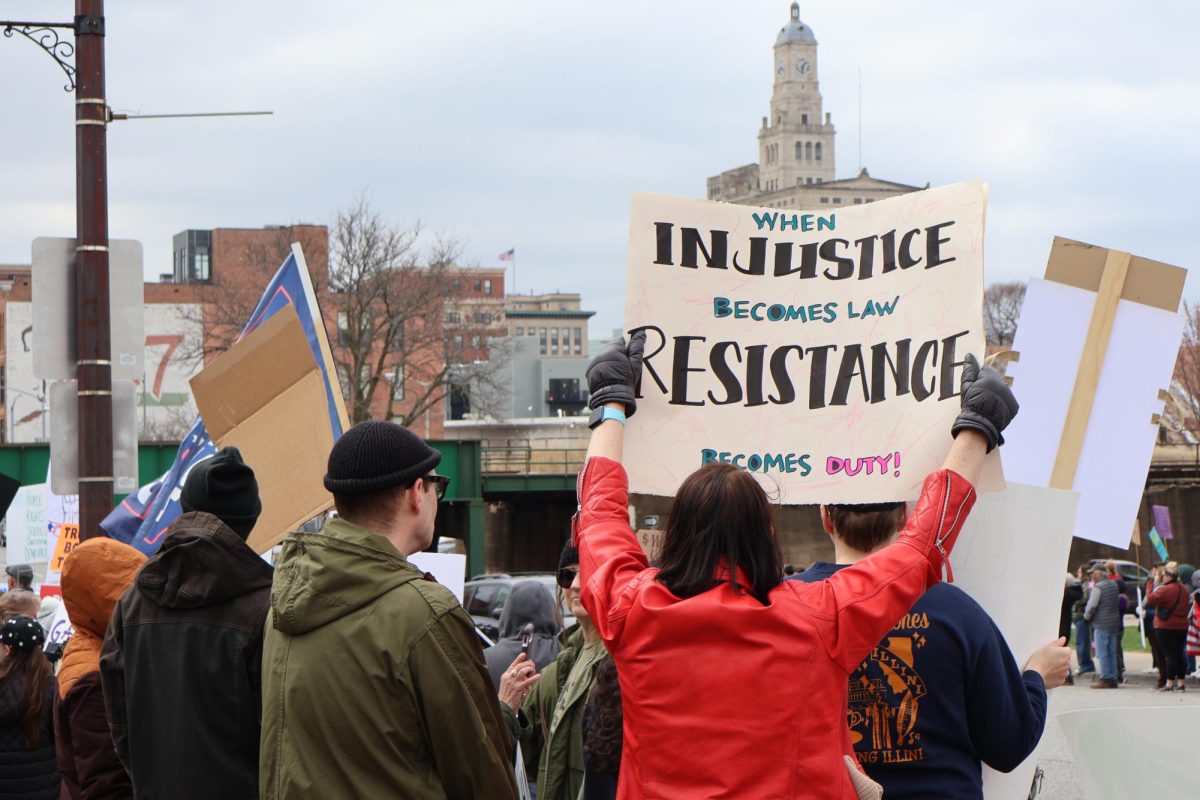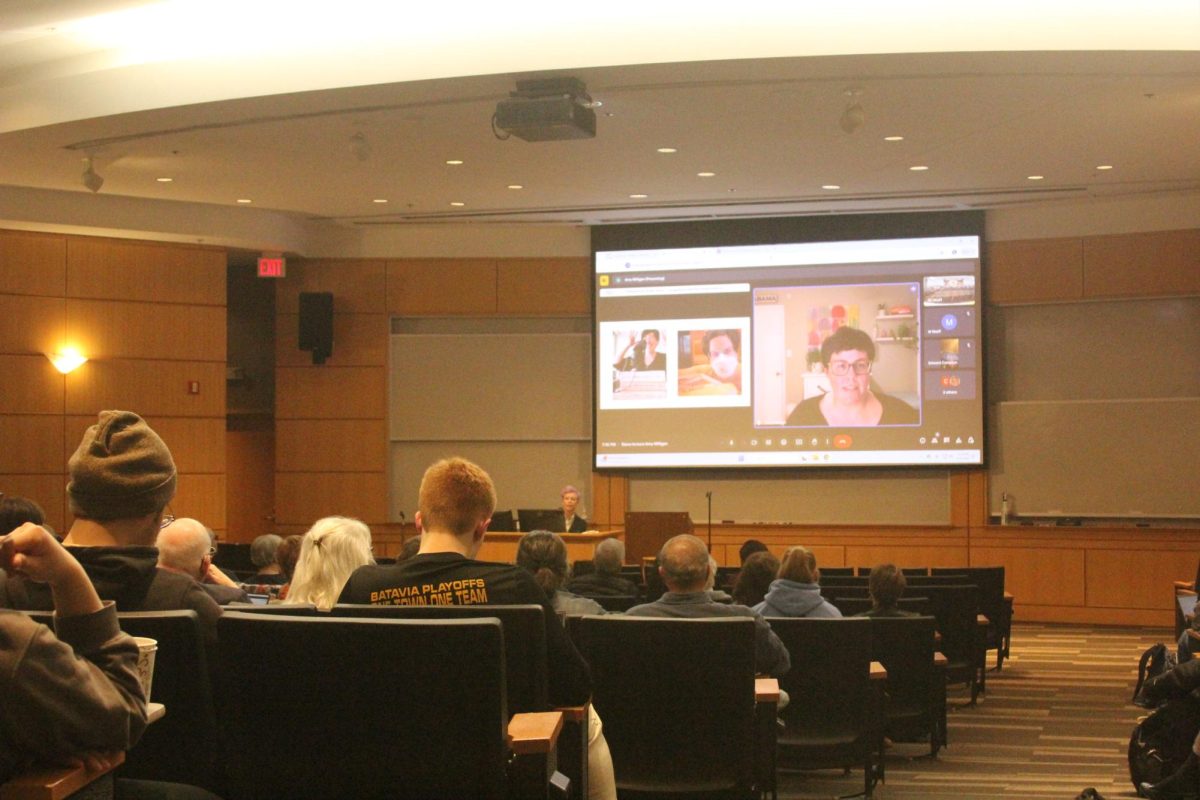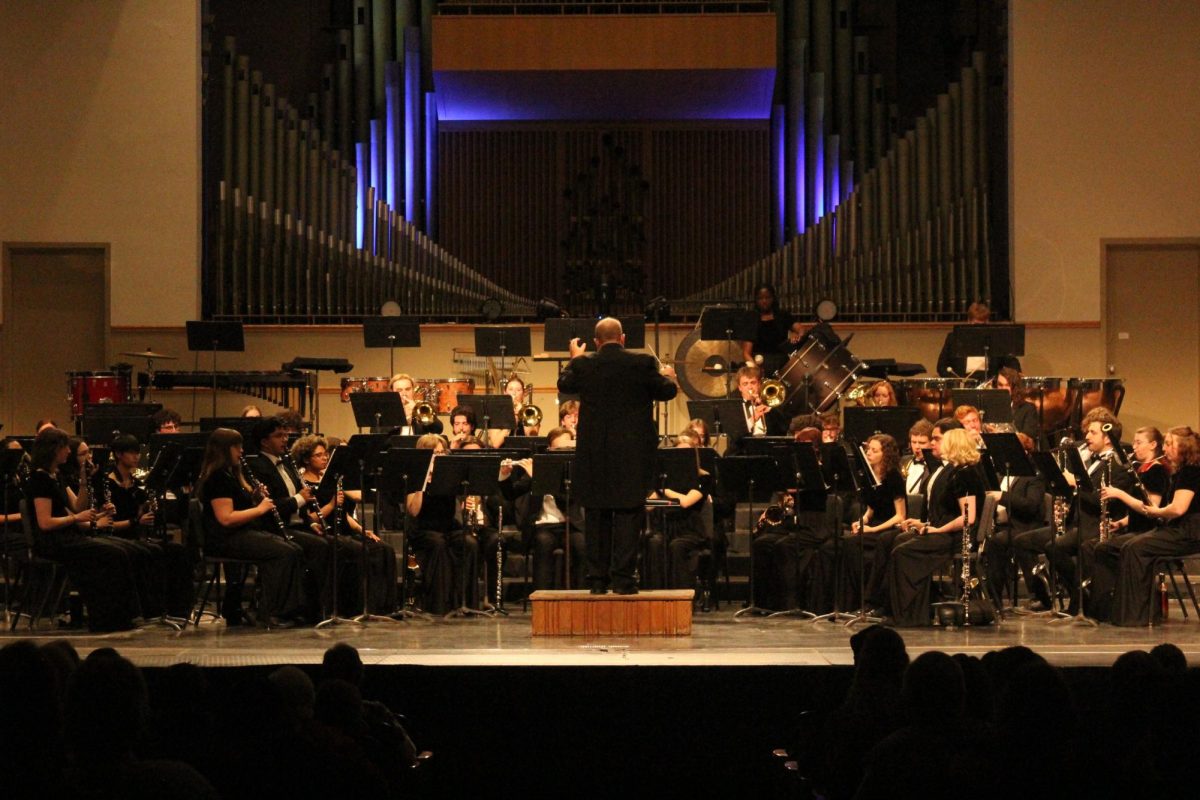On April 3, Augustana’s Center for the Study of Judaism and Jewish Culture welcomed Amy Milligan for this year’s Stone Lectureship in Judaism. Milligan is the Batten endowed associate professor of Jewish studies and women’s and gender studies and director of the Institute for Jewish Studies and Interfaith Understanding at Old Dominion University in Virginia.
The Stone Lectureship in Judaism was established in 1983 and aims to expand programming in Judaic studies, raising awareness about Jewish history and culture on campus. The annual lecture series started in 1984 and is sponsored by the college’s Jewish center.
During the lecture “Navigating History: Civil Rights and the Jews of Selma, Alabama,” Milligan presented her ethnographic research on the Jewish community in Selma and their experiences during the Civil Rights movement. In her work, Milligan said she interviewed the few remaining members of Temple Mishkan Israel, the only synagogue in Selma, about their congregation’s response to protests over civil rights.
“We’re going to question how memory and legacy can be molded and shaped through truth-telling and explore how communities that have troublesome histories can navigate that past,” Milligan said at the start of the lecture. “We’ll also question a bit about how a single synagogue can help us develop some skills for understanding a much larger national story about race, place and religion.”
Milligan said that Selma’s Jewish community had a diversity of experiences throughout the 1950s and 60s, with some being vocal supporters of the Civil Rights movement and others vocal opponents. She also said many others were wary of vocalizing their support for fear of discrimination themselves.
At the time, Milligan said a few Jews living in Selma were Holocaust survivors. She said they saw many similarities between their experiences and those of Black Americans but were afraid of experiencing antisemitism if they spoke up.
“Even if 80% of those surveyed perceived themselves as integrationists–and this is a really high number, it’s in contrast to about 30% of the general white population–they remained tight-lipped,” Milligan said. “They spoke about the fear that they felt as being next in line, that they felt like they were different as Jews, even in a community that largely accepted them.”
Throughout the lecture, Milligan told the audience many stories about the history of the Jewish community in Selma. She said that today, Selma’s Jewish community is very small, but many Jewish people still visit Selma to learn about the role of Jewish leaders in the Civil Rights movement.
Associate Professor of Communication Studies David Schwartz and Associate Professor of Religion Studies M Wolff serve as co-directors for the Center for the Study of Judaism and Jewish Culture. Schwartz and Wolff stepped into their roles at the beginning of this school year when former director Janina Ehrlich, emerita professor of cello and music history, retired in May of 2024.
As Co-director, Wolff said they’ve been working to connect with the local Jewish community and provide support to Jewish students. They said the center also offers a scholarship for First-Year Jewish students and holds an annual writing contest for students called the Geifman Prize in Holocaust Studies.
“There’s a lot of interfaith collaboration with Pastor Melinda, other local pastors and rabbis and the Jewish Federation of the Quad Cities,” Wolff said. “It’s been a steep learning curve but really great to get to know people and learn more about the history.”
Wolff said they invited Milligan to deliver this year’s talk in hopes that her work would help students connect class content with real-world events. Sophomores Myles Smith, Mak Winkiel and Sidney Underwood attended the lecture together and said they found it to be very educational and enlightening.
“It’s a bit of a different bit of history than what we’re normally taught,” Smith said. “It was a great way to learn about a different group of people than we’d normally learn about.”
Retired Augustana Professor of English Paul Olson and his wife Jeannie Olson also joined the lecture to learn more about Jewish history. As a professor, Olson said his work often concerned social equity.
However, Olson said he had not had the opportunity before the talk to explore the relationship between racial inequality and the experiences of the Jewish community. He said he found the lecture to be personally eye-opening.
“I had never really put a connection to the racial problems that they had to deal with as well. That was an awakening for me,” Olson said.





































































































